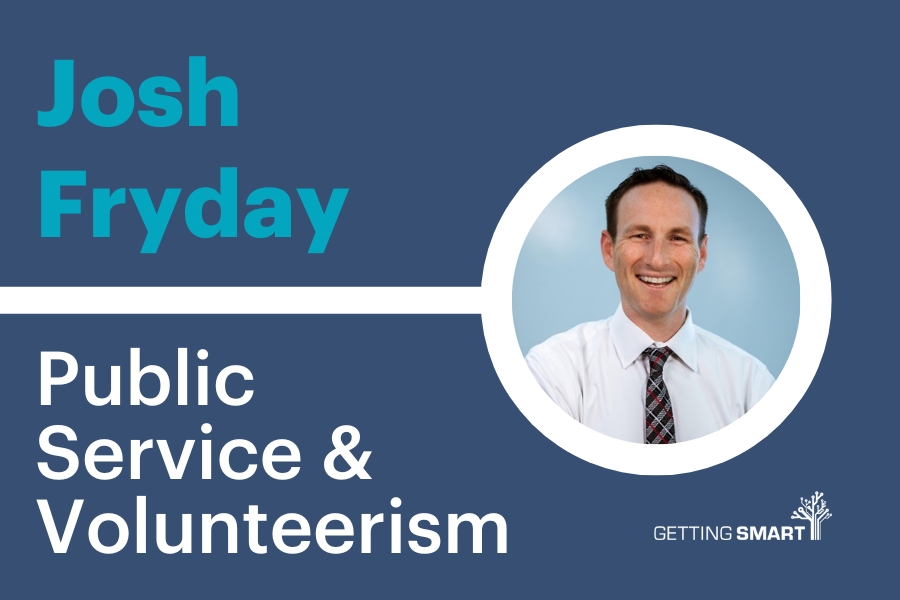Josh Fryday on Public Service and Volunteerism
Key Points
-
The heart of joy, the heart of happiness, is when you help other people.
-
Climate change is something that California is leading on because we are living it.

On this episode of the Getting Smart Podcast, Shawnee Caruthers is joined by Josh Fryday, California’s Chief Service Officer within the Office of Governor Gavin Newsom to lead service, volunteer, and civic engagement efforts throughout California.
We don’t expect you to think about how you’re going to make money, we expect you to think about how you’re going to serve your community.
Josh Fryday
Links:



0 Comments
Leave a Comment
Your email address will not be published. All fields are required.